The Counselors: Xiao Zhang, HuiChen Wang, and Yifan Zhu
From August 15th to 17th, a leadership camp inspired by CRS took place in Shanghai, China. Nine brilliant teenagers attended this summer camp and learned about service leadership. This project was organized by Chinese alumni HuiChen Wang (’16, ’17), Yifan Zhu (’15), and Xiao Zhang (’17).
Below, HuiChen Wang describes the success of the CRS-inspired summer program and reflects on the delights and challenges of undertaking this new leadership project with his fellow CRS alumni in Shanghai.
Just like many CRS alumni, I felt campsick every now and then. Scenes of my two summers at Camp often replayed in my mind. I would think of the Ghost Stone Council in which Janessa (my Camp Director) announced everyone’s name as Sachem for Life; I would think of the Dock Project for which I have spent a whole month hammering at planks and painting them; and I would think of the days when 60 young men created a Safe Place with kindness and respect. For me, campsickness represents a mixed feeling—nostalgia, gratefulness, and intensity of friendship.
It was in late March that I read the words from Freddie which propelled me to organize this project. I searched up Camp Rising Sun in Wikipedia and saw a quote from Freddie. He said the following words concerning what he expected of CRS alumni, “We ask that the boys return to life, some day and in some way, the good they have received from it [CRS]. So, we do ask a price, and it’s a rather high one.” At the time I read this, I knew I found a way to crystallize my passion for Camp. Though organizing a leadership camp could be—and it proved to be—extremely hard for a high school student, passing on what I learned at Camp was something I desired to do for my community.
Preparation for this mini CRS project went underway in April. I contacted two alumni—Yifan Zhu (‘15) and Xiao Zhang (‘17)—who both gladly agreed to be counselors in this mini Camp. We were then able to find an Educational Institution named Education First (EF) as the sponsor of our project, who has a record of sponsoring many not-for-profit educational projects each year globally. Upon hearing our conception for a leadership camp with campers being their own teachers, our sponsor quickly empathized with our observation that Chinese students need the introduction of leadership in their lives. Hence, they agreed to provide the venue and meals for our project without anything in return.
After nearly three months of camper selection, we finalized the camper list to 9 promising teenagers, most of whom were around 13 and 14. Before they attended Camp, each camper was sent an Instruction Proposal Form (thanks to LAJF for providing us with this valuable material) and a step-to-step guide on how to plan an instruction. Then, the three counselors reviewed their proposals and gave feedback regarding how to improve their plans. We were happy to see that all campers had interesting stuff they felt like sharing, such as ballet, Artificial Intelligence (AI), economics, and creativity in real life. Meanwhile, we collected ideas from campers about project sessions. Limited by space and resources, our mini camp couldn’t organize outdoor projects, but we still planned daily team challenge tasks aimed at cultivating creativity and team spirit.
The icebreaker game- the Prisoner’s Dilemma.
Our mini Camp started with one of Justin Shin’s favorite classic icebreaker game—the Prisoner’s Dilemma. As the game progressed, campers became familiar with one another. At the end of our first session, the counselors introduced the camp goals and guidelines of trust and respect.
The second session featured Xiao giving a model instruction on Japanese. In his fun 90-minute instruction, campers learned useful phrases in Japanese and played games on Japanglish (Japanese English) words. As a Camp tradition, Xiao reflected on his instruction and took feedback from the other two counselors. At this point, campers didn’t feel like giving feedback, but they would actively give one another feedback in later sessions.
The afternoon began with instructions given by campers. The instructors all came well prepared. Fellow campers and counselors were amazed at the interesting facts in economics and the history of the Tudor Dynasty. I’m very glad to see campers enjoy sharing their knowledge and being taught by others. Through lectures and group discussions, our camp goal of broadening intellectual horizon was definitely achieved. What’s more, I think the confidence they gained through giving a successful instruction is particularly valuable—this is what will convince them that they can be active agents in sharing and making changes.
Project Time
The last session of the day was a project. The task was building a paper bridge that could sustain as much weight as possible. Campers were divided into groups and they demonstrated their creativity through different designs that actually worked. In the reflection session, we discussed how each group came up with their idea. It appeared to the campers that innovation came with discussion and experimentation: new ideas rarely pop up if each member works alone. We finally came to the conclusion that this mini project mimics the process of solving problems and daily communication. Seeing the campers arrive at these conclusions, I know we have achieved what we wanted.
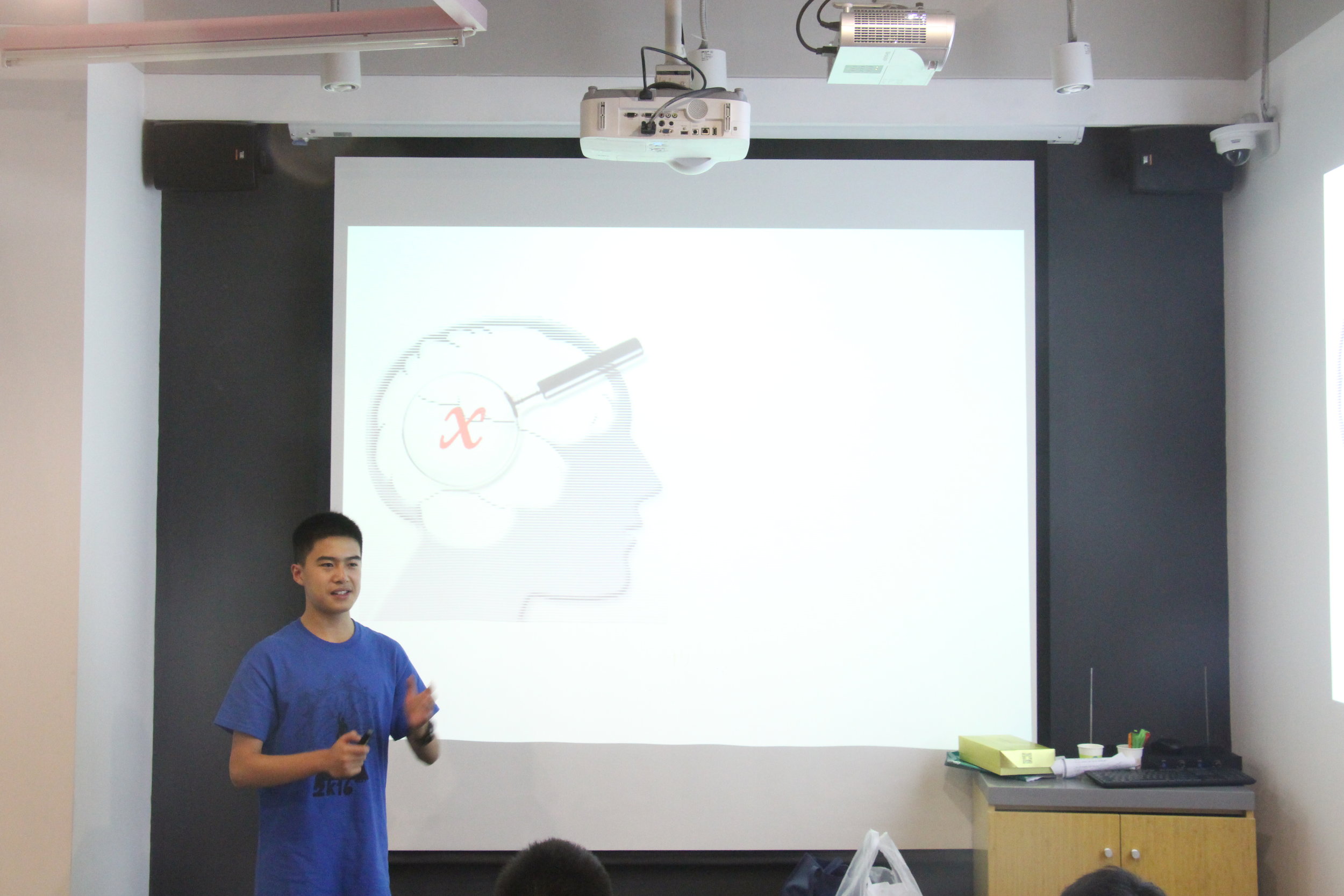
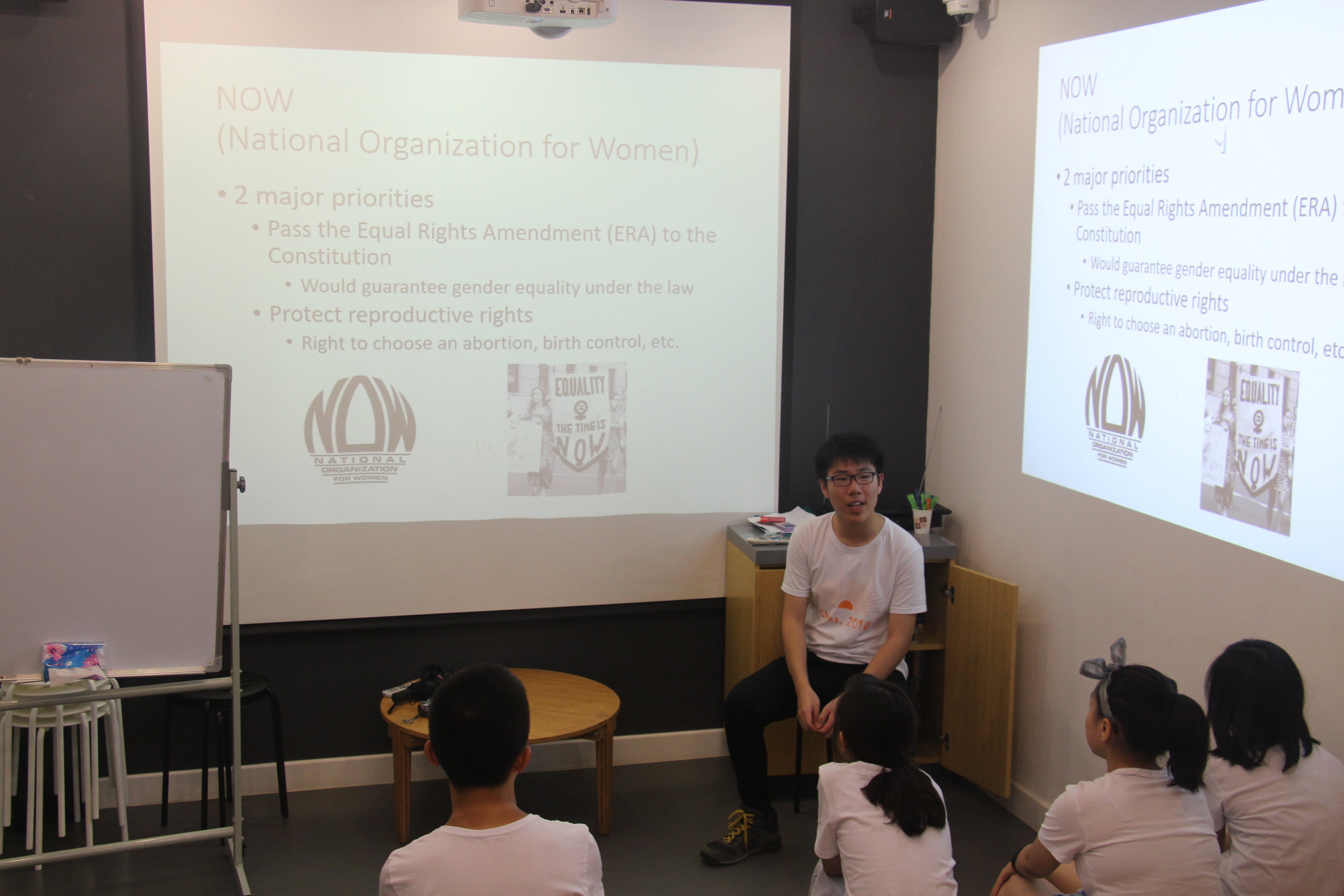
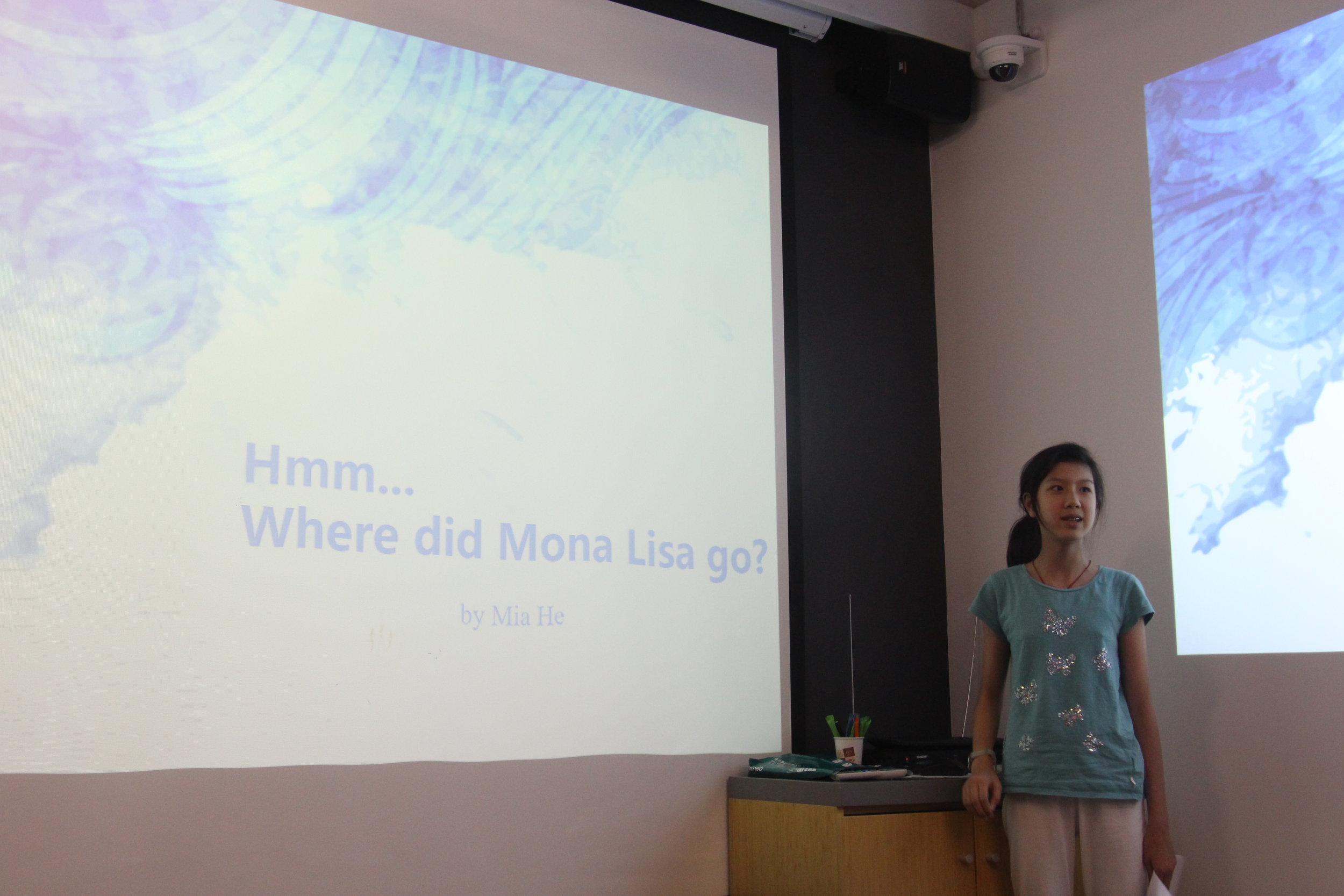
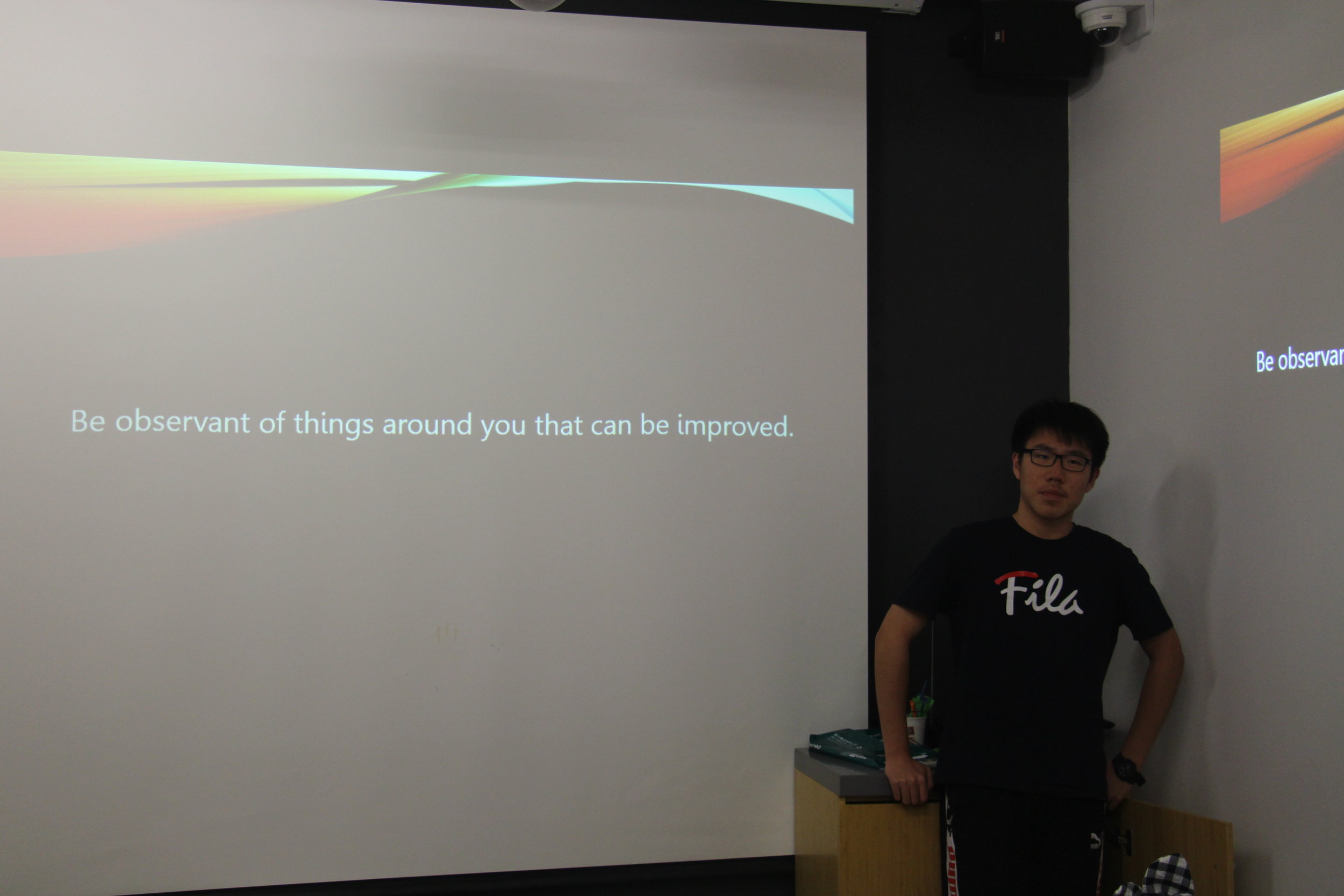
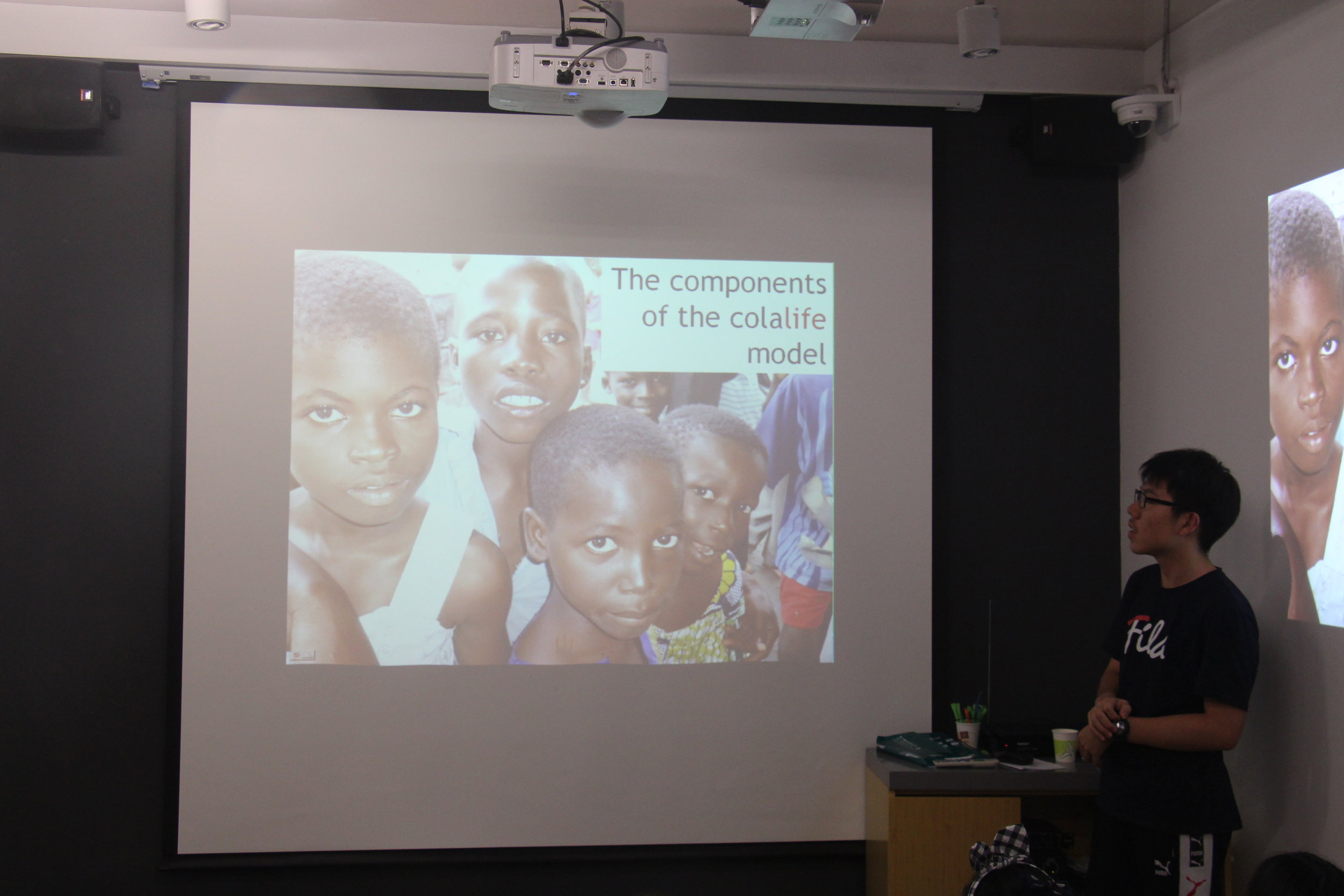
The following two days saw campers bonded more closely. We had different opinions, but we all resorted to discussion and friendly debate instead of arguing. Counselors gave instructions on political science, active listening, and psychology. Xiao talked about his experience with using leadership and team work to promote first-aid skills. We also saw fruitful discussions about feminism and human rights in which campers shared cases of discrimination or positive changes that they experienced in real life or learned from news. Everyone was constantly challenged by different perspectives raised by others. All we did was introduce the topics to campers and they naturally took over the discussion. We are confident that they will keep their passion for social issues and inspire others to do the same.
Three days is brief for a summer camp, but we hope that the lessons endure. Though we have accomplished much, there are still things we could improve next time, such as giving more initiative to the campers. Letting campers plan activities and schedule the days will give them more experience with “service leadership.” These are what we seek to improve next year.
Organizing this mini CRS has also been a learning experience for me. Starting from scratch to do such a “crazy” project revealed the hard work behind a summer camp to me. From finding a sponsor to planning the activities, I enhanced my interpersonal skills. Now I view the work of LAJF with more respect than ever, considering that the Foundation is responsible for every detail of Camp.
Shout out to LAJF, to supportive CRS alumni, and to all those who dare to chase wild dreams!



